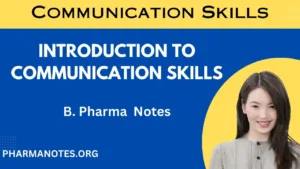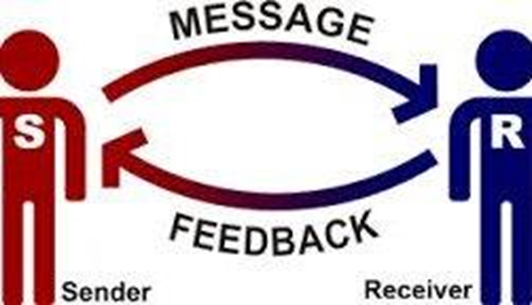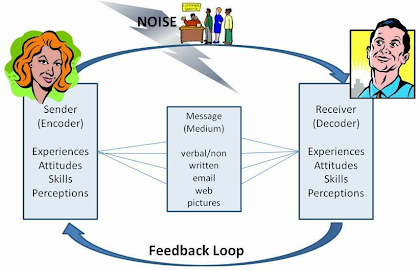Introduction to Communication Skills

Introduction to Communication Skills
Objective
At the end of this session, the student will be able to:
• Comprehend the importance of communication
• Identify the forms and channels of communication
• Apply the process of communication for proficiency
Definition of Communication
Communication is:
• A word derived from the Latin word communis or commūnicāre, which means ‘to make common’ or ‘to share’
• The act of conveying information, ideas and attitudes to another person by using mutually understood signs and languages
Importance of Communication
• Promotes motivation and improves performance
• Acts as a source of information for decision making process
• Keeps a person informed, creates better attitude and helps in socializing
• Helps to control the behavior of a person towards a positive outcome
Components of the Communication Process
The components of the communication process include:
1. Sender: Initiates the communication
2. Receiver: The individual/ group to whom the message is sent
3. Channel/Medium: Carrier of the communication
4. Message: The outcome of the encoding, which takes the form of verbal (written/oral words), or nonverbal aspects
Terminologies in Communication Process
The terminologies of communication process:
1. Encode: The idea by selecting words, symbols, or gestures with which to compose a message by the Sender
2. Decode: Translation of the message into meaningful information by the Receiver
3. Feedback: Happens when receiver responds to the sender’s message and returns the message to the Sender
4. Noise: Anything (perception, language, external sound etc.) that alters the message
Communication Process/Loop
Basic Types of Communication
Verbal Communication
• Oral Communication
• Written Communication
Non Verbal Communication
• Sign Language
• Body
• Paralanguage
• Space Surrounding Time
• Silence
Communication Channels
Communication channel/medium facilitates clear transmission of message from sender to receiver.
|
Oral Communication Channels |
Written Communication Channels |
|
Face to face interactions |
E-mails |
|
Face to face meetings |
Fax |
|
Telephone |
IM/Chat |
|
Video/Audio conferencing |
Flyers/Brochures/ Pamphlets etc. |
Note: Channels are used for both forms of communication (formal and informal)
Effective Communication
Effectiveness of Communication is a mandate for organizational and personal success. The effectiveness of communication can be achieved by:
1. Being a good listener
2. Adopting appropriate body language and tone
3. Acknowledgement
4. Maintaining eye contact (do not stare)
5. Developing a shared sense of purpose
Essentials of Effective Communication
• Conceptual Clarity
• Language
• Understand the process of communication
• Plan the communication
• Positive approach
• Appropriate feedback
• Avoid communication overload
• Timeliness
Summary
• Definition of Communication – Communication is the art of transmitting information, ideas and attitudes from one person to another
• Forms of Communication-Verbal and Non Verbal Communication
• Communication Channels-Face to Face, Broadcast Media, Mobile, Electronic, Written
• Communication Process-Sender, Encoding Message, Message Channel, Decoding Message, Receiver and Feedback
• Essentials of Effective Communication
FAQs
1. How can I improve my communication skills?
- To enhance your communication skills, practice active listening, work on your body language, and seek feedback from others.
2. What are the common barriers to effective communication?
- Common barriers include language differences, cultural misunderstandings, emotional barriers, and distractions.
3. How has social media changed the way we communicate?
- Social media has revolutionized communication by providing new platforms for sharing information, connecting with others, and influencing public opinion.
4. Why is effective communication important in business?
- Effective communication is essential for teamwork, leadership, conflict resolution, and building strong client relationships in the business world.
5. What is the future of communication in the digital age?
- The future of communication involves innovations like artificial intelligence and virtual reality, which will continue to reshape how we connect and collaborate.
Reference
Books:
1. Sathya Swaroop Debashish, 2014, Business Communication, Delhi, PHI Learning Pvt. Ltd.
2. Hory Sankar Mukerjee, 2014, Business Communication-Connecting at Work, New Delhi, Oxford University Press
Also, Visit:
B. Pharma Notes | B. Pharma Notes | Study material Bachelor of Pharmacy pdf

